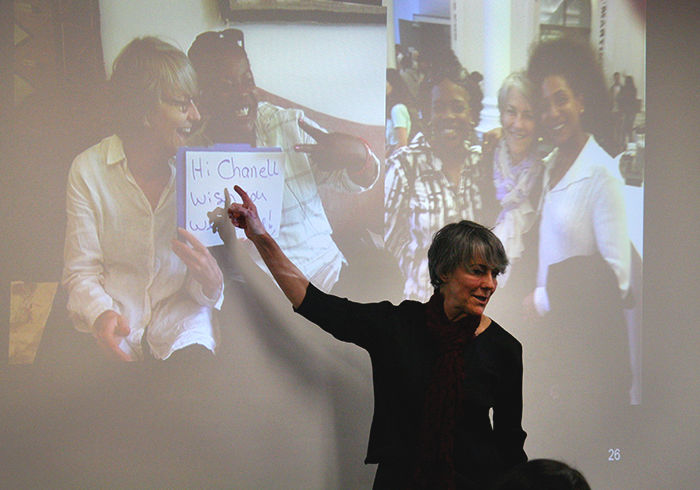Columbia University prof addresses women incarceration
March 31, 2017
The U.S. correctional system is ineffective and unfairly disadvantages women, a Columbia University professor said at a Coffee and Politics talk on Thursday.
Christia Mercer, the Gustave M. Berne professor of philosophy at Columbia University, teaches prison inmates as part of the university’s Justice-in-Education Initiative. Mercer is a proponent of the prison abolition movement that seeks to replace U.S. jails and prisons with “more humane and effective systems.”
The U.S. is the world leader in incarceration, Mercer said during the talk. While the U.S. accounts for just 5 percent of the world population, the nation contains more than 25 percent of the world’s incarcerated population, as well as 33 percent of the world’s incarcerated women.
These high incarceration rates are due to the prison-industrial complex, Mercer said. The prison-industrial complex involves U.S. for-profit prisons and their influence in American politics, she said.
Mercer said women are outpacing men in arrests, especially in recent decades. This is due to gender mistreatment in schools that discourage high-paying jobs for women, increased poverty among women and aggressive policing, she said. However, Mercer added that women are typically arrested for non-violent crimes.
The incarceration of women can cause collateral damage to their families and communities, Mercer said. Women are more likely than men to be primary caregivers for their children, and an arrested mother must often place kids in foster homes. Mercer said living in foster homes can lead to physical or sexual abuse, factors that increase a child’s likelihood of being incarcerated later in life.
Mercer said prisons often do more harm than good, especially to women. Jails often serve to worsen an individual’s pre-existing mental issues and violent tendencies, making them more prone to reoffend and remain incarcerated, she said.
“It seems obvious that prison as rehabilitation is not working,” Mercer said.
In addition to prison system reform, Mercer said there are many preventative measures that could be taken to reduce incarceration rates.
“What we need to do is invest in public schools, public health and girls’ education,” Mercer said.
By doing this, the nation can provide women with better education, equal employment opportunities and improved treatment for mental health and substance abuse issues. The U.S. can decrease arrests by improving in these areas, Mercer said.















